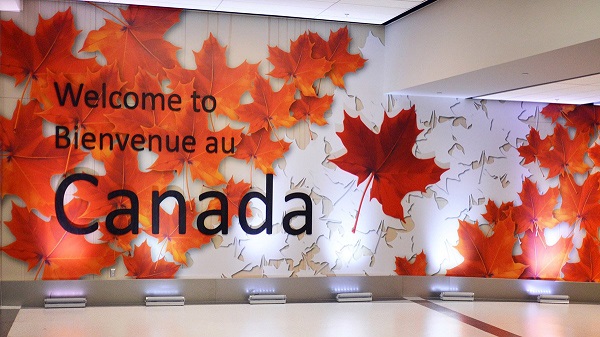Lives shattered by Canada’s immigration laws: the tragedy of Iordache family
AKWESASNE MOHAWK – The children, aged 1 and 2, both had Canadian passports and were baptized at the Romanian Orthodox Church of All Saints in Scarborough in June last year. The father, 28, worked in construction and cleaning and with his wife – the same age, both in Toronto since 2018 – frequented the parish community. But it wasn’t enough to stay in “welcoming” Canada, which expelled them. And they, in a desperate attempt to reach the United States to try to build a future for themselves, drowned in the St. Lawrence River.
The umpteenth tragedy caused by an immigration system that borders on inhumanity has only emerged in the last few hours, when further details on the identity and stories of the eight victims were learned of the shipwreck of St. Lawrence, about 130 kilometers west of Montreal, on the border between Quebec, Ontario and New York, where many migrants try to cross from Canada to the United States.
The eight victims, therefore, are from two families: one Romanian and another of Indian origin.
The first was the one composed by Cristina (Monalisa) Zenaida Iordache and Florin Iordache, 28 years old. Florin Iordache had Canadian passports for their two young children – aged 1 and 2 – who were also among the victims.
The Iordache family lived in Toronto where they were already quite integrated: Father Emanuel Tencaliuc, a priest of the Romanian Orthodox Church of All Saints, in Scarborough, told the media that the four victims were included in a prayer during a weekend service: the couple’s two children had in fact been baptized in that church in June 2022. “A young, quiet, shy family,” the priest said on Monday. “They wanted to be part of the community”.
A friend of Florin said, again on Monday, that the Iordache family had to face the drama of deportation from Canada: in fact, Florin had just been denied permission to remain in the country. And, according to what was reported by the CBC, in the online register of the Federal Court, on March 10, there was the filing of an appeal by a person corresponding to the name of Florin Iordache (with another person, Monalisa Budi). An appeal also presented because the family, of Roma ethnicity, feared persecution in the event of a return to Romania: for this reason they had previously submitted various applications to remain in Canada, as stated by the family’s lawyer, Peter Ivanyi, in an interview given the day before yesterday to The Globe and Mail (the article is here: Migrant family that died trying to cross St. Lawrence River was set to be deported).
On Facebook, Iordache’s friend, a Toronto resident and member of the Romanian community, questioned why immigration officials would try to deport Iordache, who had two Canadian-born children and worked in construction and in housekeeping. “He was happy here,” said the friend, adding that the Romanian community is trying to raise money to have the bodies brought home to their families, who the friend described as low-income.
The other family was Indian: Praveenbhai Chaudhari, 50, a farmer; his wife Dakshaben, 45; the two children Incontra, 20 years old, and Vidhi, 23 years old. Achal Tyagi, police superintendent of Mehsana town in western Gujarat state, India, said the family “set off from here on a Canadian (tourist) visa. But what happened there and why they were traveling in the United States is not known”. Indian police are in contact with the Canadian embassy in India and the RCMP, Tyagi said. But details are scarce because the investigation is in its infancy. What is certain is that they died, all four of them, while trying to reach the United States. Yet another of many similar tragedies.
Akwesasne Mohawk Council Grand Chief Abram Benedict told the CBC on Tuesday (the article is here: Desperation behind illegal border crossings, Akwesasne chief says) that desperation is driving some people to risk their lives by illegally crossing the Canada-US border, and economic pressure is driving some community members to help them. And he added that he hopes the tragedy will cause politicians in both countries to question their approaches to immigration. “We need to take a moment, stop and think how desperate these people were who were willing to put their family’s lives at risk… to choose illegal routes to enter another country,” he said, pointing his finger at the long lead times. of processing for immigration applications and against the lack of information for aspiring migrants.
Furthermore, Benedict said that some members of the local (Aboriginal) community, who have financial problems, may be tempted to help organized crime who “smuggle” people across the border. And this is perhaps also the case of Casey Oakes, a native of Akwesasne, whose boat was found near the bodies of the eight victims and who the authorities link, albeit timidly, to the attempt by the two families to reach the United States illegally. A “smuggler”, in short. He’s still missing. He too, somehow, a victim of a sick system.
The pic above is from Canada Border Services Agency’s Twitter page (@CanBorder)




